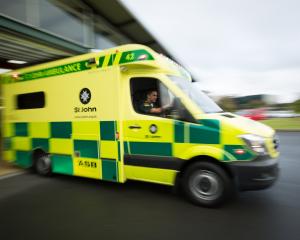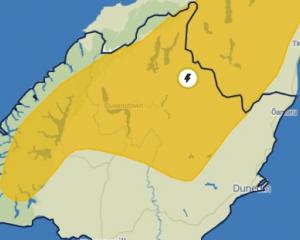
One advantage James Meager has as he embarks upon the challenge of being the first Minister for the South Island - there has never been one before, so he can shape the role how he likes.
"Even if there was an argument, and I don’t think there is, that it was a symbolic position, if it’s a symbolic position that leads to good outcomes for the South Island, then I would consider that a win anyway," he said.
Mr Meager was speaking just after having made a 20-minute presentation to the National party’s Mainland Conference on unlocking the South Island’s potential.
Even though he was speaking to a partisan audience which needed little persuasion, Mr Meager’s cheeky insertion of "(best)" in between South and Island on his title page would have won over any doubters.
Nor did his explanation that he had missed the morning sessions of the conference because he was duck-shooting on Lake Waihola (complete with photographic evidence) do him any harm. Mr Meager may be a new MP, the first of the class of 2023 to become a minister, but he has found his feet remarkably quickly.
"I think that if you put your energy and resources and time into the right places, you can achieve a lot as an advocate and as a voice," Mr Meager said.
"You don’t need a large bureaucracy or a large budget to be able to do that.
"If you can make sure you can draw ministers’ attention to the key issues, I think that’s important.
"And at the end of the day, if there’s not a huge budget attached to it, then what you get is you get an advocate essentially operating for free for you."
As Mr Meager detailed in his exceptional maiden speech to Parliament, he is not your stereotypical National MP.
Of Ngai Tahu descent, raised by a solo mother in straightened circumstances, Mr Meager rose to become dux and head boy of Timaru Boys’ High School, before gaining an LLB and BA from the University of Otago.
Serving on the OUSA executive, Mr Meager volunteered for then-Dunedin National list MP Michael Woodhouse, before becoming a solicitor.
The pull of politics was too strong, however, and after working for Paula Bennett, Sir Bill English and Simon Bridges, Mr Meager sought and obtained the National nomination for his hometown seat of Rangitata.
Although historically a safe National seat, Jo Luxton had won it for Labour in 2020 with a 4408 majority so this was not a win Mr Meager could comfortably cost to.
After plenty of hard work he did flip the seat.
Having made an early splash by being nominated as the backbench MP to give the traditional opening speech in the Address In Reply debate, Mr Meager cut his teeth as chairman of the justice select committee before his slightly surprisingly rapid elevation to the executive earlier this year.
Mr Meager is now Minister of Hunting and Fishing, and Youth, and an associate transport minister, as well as his South Island responsibilities.
Feelings remain mixed on whether the South needs its own minister or not, but at least its representative is clearly a man on the rise.
Mr Meager is not in Cabinet - yet - but he said that posed little impediment to having his voice heard advocating for the South at the top table.
"There’s kind of like a real false distinction between what being inside and outside Cabinet means," he said.
"The only difference ... is that ministers outside Cabinet don’t have to get oversight of every single Cabinet paper, because every Cabinet paper is Cabinet: they get stuff that is in their purview.
"But I get to have input and oversight into anything, any policy, any issue that looks to impact on the South Island, and that’s from a specific project perspective or from a general policy perspective.
"So as I grow into the role, I’ll be able to go to more and more ministers and say, actually, ‘I’m interested in this’, or ‘we think this is important in the South’."
The closest equivalent post to Minister for the South Island is Minister for Auckland, but the Super City is a distinctive, geographically small, confined area in its own right, whereas the South Island has the same landmass as several small countries but is sparsely populated.
Also, almost every government policy will affect someone in the South Island somehow, something which not necessarily the case for Aucklanders.
"That’s actually a really good point because the Auckland issues portfolio is one where it could be more of a policy development space because it’s a specific area with fairly similar themes of issues but also fairly similar specific issues," Mr Meager said.
"But you’ll know as you go around South Island, the housing challenges in Rolleston, Lincoln and Central Otago are different to the ones in Dunedin and South Canterbury - they’re almost the opposite - so you can’t treat it as a policy development space.
"It’s got to be a real advocacy space."
This has left Mr Meager and his boss, a prime minister who likes a key performance indicator (KPI), to figure out what constitutes success for a Minister for the South Island.
Is it demonstrable wins in a few small areas, having a say on almost everything, or picking a few areas - Mr Meager nominates economic growth, infrastructure, logistics and public services - where his influence can be felt?
"I think for me, the start of that presentation where I looked at what the GDP of the South Island is [22% of New Zealand’s GDP], if we can see growth in that space beyond what the national growth is, I would consider that to be a success," Mr Meager said.
"Now how much you can attribute that to the mechanisms of me driving up and down State Highway 1 saying that we’ve got to invest here and there or support here and there, I’m not too sure.
"But that at least looks like success."












